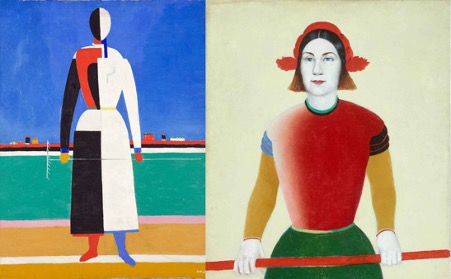
What does a culture look like after it undergoes a series of revolutions—sexual, political, linguistic—in short succession, and twice in one century? To answer this question, this course surveys literature from the last days of the Russian Empire, the rise and fall of the Soviet Union, and the turbulent present of the Post-Soviet World. Russian-language literature of the twentieth and twenty-first centuries has been integral to the formation of the culture and self-conception of the Soviet and Post-Soviet world, and offers one of the best means to understand the character of the Soviet epoch and its contemporary legacies. We will consider how literary authors grapple with catastrophic upheaval, from the rapid construction of industrial socialism, to Stalin’s purges, World War II, the Gulag labor camps, and the Russian war on Ukraine in 2014 and the present. Our readings, lectures, and discussions will focus on the ways writers used literature to realize revolution, resist repression, process trauma, envision the future, and articulate their identities, histories, and social commitments as artists.
We begin with a view of an old world quickly disappearing and the violent processes by which the new Soviet world was born with Anton Chekhov’s narrative of the dissolution of traditional life in the village, “In the Ravine,” followed by Isaac Babel’s stories from the frontlines of the Russian Civil War. From here, we explore how sex and the family were remade by revolution in stories by Marxist Feminist Alexandra Kollontai, excerpts of Fedor Gladkov’s paradigm-setting Socialist Realist novel Cement, and Yury Olesha’s Envy—an ironic novel for an excessively sincere time. Andrey Platonov’s Soul explores the limits of the Soviet project—and the Socialist Realist form. Anna Akhmatov documents Stalin’s purges in a novelistic lyric poem, while the great Belarusian author Vasil Bykau’s Live Until Dawn narrates the harrows of World War II with deep ambivalence. The post-Stalin Thaw era gives us a view of writers reflecting on the totalitarian decades that preceded: we read Irina Grekova’s, The Story is Fresh, newly translated by our own Prof. Forrester, and Andrey Sinyavsky a.k.a Abram Tertz’s The Trial Begins, a novel about the impossibility of making meaning after years of repression. Venedikt Erofeev’s raucous tale of drunken absurdity and Dmitry Prigov’s playful poetry of encrusted ideology will help us understand the strange, stagnant 1970s. Chingiz Aitmatov’s The Day Lasts More Than a Hundred Years combines Kyrgyz folklore with romantic sci-fi utopianism. Finally, we will look at how contemporary Russian and Ukrainian writers grasp their world and imagine the future in an era of Putinism and, again, war.
This course provides a kaleidoscopic view of Russian-language literature in the Soviet century, while also keeping an eye on the enduring universal themes of the works, and their contemporary relevance. Class time will involve both introductory lectures and seminar-style discussions with a strong emphasis on the latter. We’ll talk about what makes each work an important piece of literature and what each of us finds particularly relevant and remarkable in the texts, and connect these to the diversity of knowledge and experiences that each student brings to class. The class and readings will be in English; no previous knowledge of Russian language, culture, or history are assumed. This is also a writing intensive course in which you will develop and improve your analytic writing skills.
We begin with a view of an old world quickly disappearing and the violent processes by which the new Soviet world was born with Anton Chekhov’s narrative of the dissolution of traditional life in the village, “In the Ravine,” followed by Isaac Babel’s stories from the frontlines of the Russian Civil War. From here, we explore how sex and the family were remade by revolution in stories by Marxist Feminist Alexandra Kollontai, excerpts of Fedor Gladkov’s paradigm-setting Socialist Realist novel Cement, and Yury Olesha’s Envy—an ironic novel for an excessively sincere time. Andrey Platonov’s Soul explores the limits of the Soviet project—and the Socialist Realist form. Anna Akhmatov documents Stalin’s purges in a novelistic lyric poem, while the great Belarusian author Vasil Bykau’s Live Until Dawn narrates the harrows of World War II with deep ambivalence. The post-Stalin Thaw era gives us a view of writers reflecting on the totalitarian decades that preceded: we read Irina Grekova’s, The Story is Fresh, newly translated by our own Prof. Forrester, and Andrey Sinyavsky a.k.a Abram Tertz’s The Trial Begins, a novel about the impossibility of making meaning after years of repression. Venedikt Erofeev’s raucous tale of drunken absurdity and Dmitry Prigov’s playful poetry of encrusted ideology will help us understand the strange, stagnant 1970s. Chingiz Aitmatov’s The Day Lasts More Than a Hundred Years combines Kyrgyz folklore with romantic sci-fi utopianism. Finally, we will look at how contemporary Russian and Ukrainian writers grasp their world and imagine the future in an era of Putinism and, again, war.
This course provides a kaleidoscopic view of Russian-language literature in the Soviet century, while also keeping an eye on the enduring universal themes of the works, and their contemporary relevance. Class time will involve both introductory lectures and seminar-style discussions with a strong emphasis on the latter. We’ll talk about what makes each work an important piece of literature and what each of us finds particularly relevant and remarkable in the texts, and connect these to the diversity of knowledge and experiences that each student brings to class. The class and readings will be in English; no previous knowledge of Russian language, culture, or history are assumed. This is also a writing intensive course in which you will develop and improve your analytic writing skills.
- Teacher: Helen Stuhr-Rommereim
- Teacher: Anton Svynarenko
